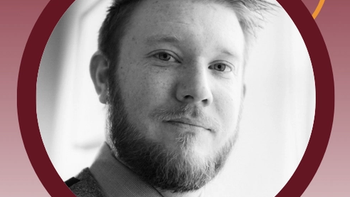
Europe Edges Towards a Health Research Plan
Europe's research ministers are will meet to attempt to reach agreement on European Union research plans for the next seven years, including a cluster devoted to a broad range of health goals that range from general objectives to subjects of more specific interest to the community.
On September 29, Europe's research ministers will attempt to reach agreement on European Union research plans for the next seven years—including how to make use of more than $7bn that is slated to be allocated to health.
The plans include a cluster devoted to a broad range of health goals that range from general objectives such as "improving and protecting the health and well-being of citizens at all ages" to subjects of more specific interest to the clinical trial community, such as "tools, technologies and digital solutions for health and care, including personalized medicine." Anja Karliczek, the German federal minister of education and research who will chair this meeting of the EU Council, will have to navigate between numerous sensitivities and priorities among the other 26 member states (the UK no longer takes part in these meetings) and between the Council and the European Parliament, where tensions exist over the size of the budget and the nature of the programs to be funded.
Success will result in a general policy agreement, and in keeping on track this complex multi-billion program that also covers climate change, security, agriculture and creativity. So people working in healthcare across Europe (and indeed beyond, since the program envisages international cooperation with countries outside the EU) will be able to look forward to assistance in "generating new knowledge, developing innovative solutions, and ensuring to integrate where relevant a gender perspective to prevent, diagnose, monitor, treat and cure diseases and developing health technologies." There will be backing for "mitigating health risks, protecting populations and promoting good health and well-being, also in the workplace." Another target is "making public health systems more cost-effective, equitable and sustainable," and "preventing and tackling poverty-related diseases." Interventions are particularly foreseen on non-communicable and rare diseases; infectious diseases, including poverty-related and neglected diseases, and health care systems.
Linked EU spending will also support "innovative technologies and new business models and solutions" that result from the research program, "so to contribute to innovative, efficient and sustainable health systems and facilitate access to better and safer healthcare for European citizens." And provision is also to be made for "institutionalized European Partnerships on faster development and safer use of health innovations for European patients, and global health," as well as on "advancing key digital and enabling technologies and their use, including but not limited to novel technologies such as artificial Intelligence, photonics and quantum technologies." And over lunch, ministers will exchange views on how future research and innovation missions can help overcome the COVID-19 pandemic.
Meanwhile, preparatory work is progressing on one of the expected components of the program, which was initially branded the 'EU Cancer Mission' but has now adopted a new title: 'Conquering Cancer'. A board of European cancer experts has set out specific goals for this initiative in a lengthy report it published in late September, highlighting its aim to prevent three million cancer deaths by 2030 through better prevention and treatment, and to improve rehabilitation for cancer survivors. It proposes the creation of an EU-wide platform for sharing cancer research, to be called UNCAN.eu, as well as improved access to early screening. And among its 13 identified goals are the optimization of diagnostics and treatment, and support for the quality of life of people living with and after cancer.
But the board's evident ambitions to broaden the mission's goal to include a focus on prevention has raised concerns in some quarters that some of its budget might be diverted away from research and innovation. Mission board chair Walter Ricciardi, president of Italy’s National Institute of Health, is insistent on the need to deal with causes as well as symptoms, by taking action against tobacco use or excessive drinking, through taxation and other means: “You cannot be serious in fighting cancer if you don’t target and tackle the determinants of cancer, which in many cases are risk factors related to behavior,” he said.
The detailed discussions over this aspect of the EU research agenda still have to take place, but they are illustrative of the complexity of the task facing diplomats and politicians as they move towards finalizing the program. Anja Karliczek has no easy task at tomorrow's Council meeting.
Newsletter
Stay current in clinical research with Applied Clinical Trials, providing expert insights, regulatory updates, and practical strategies for successful clinical trial design and execution.




